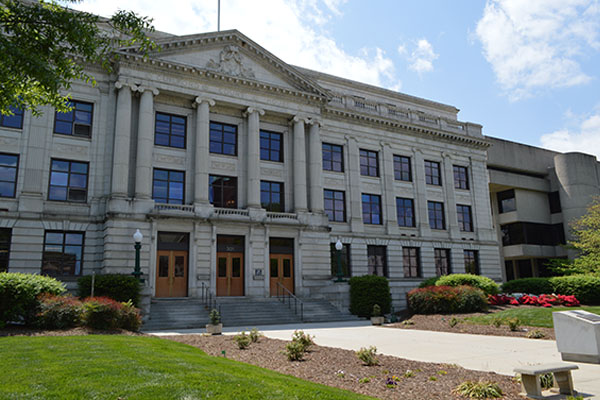There was a very interesting moment at the end of a Monday, Aug. 6 hearing in the courthouse in downtown Greensboro.
Guilford County Senior Resident Superior Court Judge John Craig had just finished hearing an appeal case – one brought by former Summerfield Town Councilmember Todd Rotruck in his attempt to get his council seat back – and the judge was ready to review the case in the coming days.
Craig apologetically asked legal counsel from both sides if they had a copy of the case’s court record that he could have. He said the clerk of court’s office had become “very jealous of the files” and he therefore wondered if he could get a copy from one of the attorneys.
It was kind of funny watching the county’s senior resident court judge having to ask around for a copy of a court record, but it was an illustration of a serious new court document-tracking crackdown by Guilford County Clerk of Superior Court Lisa Johnson-Tonkins and her office – which has had a problem with judges taking court records and not returning them in a timely manner.
The clerk of court’s office is attempting to institute a new tracking method for court documents and that’s led to some hiccups in judges being able to get court files.
Guilford County Chief District Court Judge Tom Jarrell said the problem of misplaced court files has been an issue, and he said the judges and the clerk’s office are now in talks to establish a system that’s agreeable to all.
“It’s an evolving process,” Jarrell said.
He said it’s understandable Johnson-Tonkins would be concerned about tracking the documents since her office is legally responsible for the safekeeping of court records.
In some cases, judges have taken files and not returned them while the clerk’s office was in the dark as to who had that file.
“Currently there is no rule in place on that,” Jarrell said of judges taking court records.
“We’ve never permanently lost a file,” he added, noting that the court system does need some sort of established procedure.
He said that he, Craig and Johnson-Tompkins would be in talks to resolve the issue.
Jarrell said there’s always a lot going on in the county’s court system since there are a huge number of cases with multiple offices of the justice system interacting with each other.
Complicating matters is the fact that Guilford County, unlike nearly every other county in the state, has two courthouses rather than one, and Guilford County also has a very large amount of court traffic since it’s the third most populous county in North Carolina.
“There is so much going on,” Jarrell said of Guilford County’s court system.
He said the problem can’t be solved by continually making multiple copies of everything. He said there are a huge number of cases each year and some court records consist of big stacks of paper. That’s especially true since the record includes the entire history of the case.
“We try to be good stewards of the state’s money,” Jarrell said.
He added, “We only get so much money from the state,” and he noted that, if court workers made multiple copies of everything, the county’s court system would run out of money for paper months before the end of the fiscal year.
Johnson-Tompkins said her office is currently working with judges to find a satisfactory solution.
She said the clerk’s office is charged by law with keeping track of the files so a new policy was needed rather than a continuation of what in the past has essentially been a haphazard honor system for judges.
Court officials say the method to be adopted may be like “signing out a library book” for a set period of time, or could be a system that, like some department store changing rooms, limits judges to a certain number of items at any one time.
“Three is a manageable number per judge,” Johnson-Tompkins said.
She also said she recently sent out an email to address the issue and that prompted a surprising result.
“One judge returned a file after eight years,” she said.
She added that court workers had had to reconstruct that once lost file at great pains and then, when it was returned after so many years, they had to merge the two files.
With about 20 District Court and Superior Court judges in Guilford County, there are a lot of documents floating around to keep up with at any one time.
She said that, by law, court files aren’t supposed to leave the courthouse.
She added that her office can scan the files and provide electronic copies to judges.
However, several court officials said many judges have a strong desire to have the hard copy.
Craig said he was confident the matter would be resolved to everyone’s satisfaction. He said a solution was just a matter of he, Jarrell and Johnson-Tompkins getting their schedules to align to discuss the matter and come up with a system.

